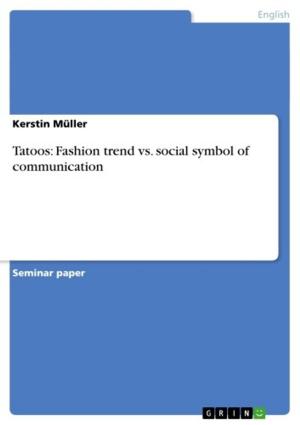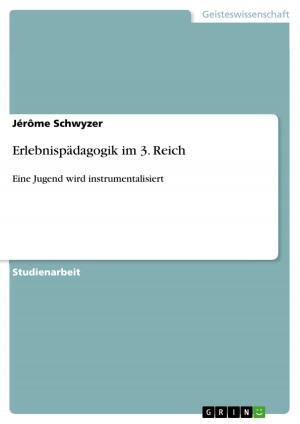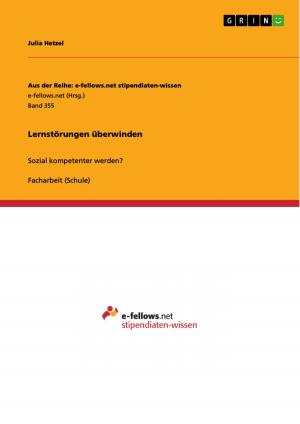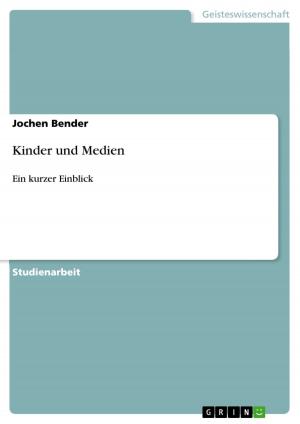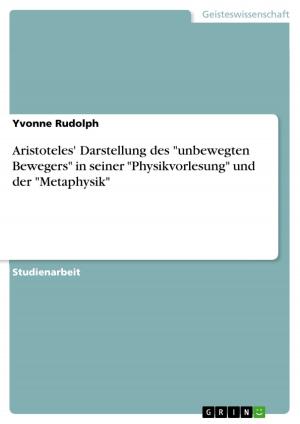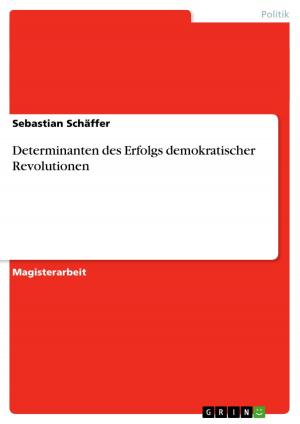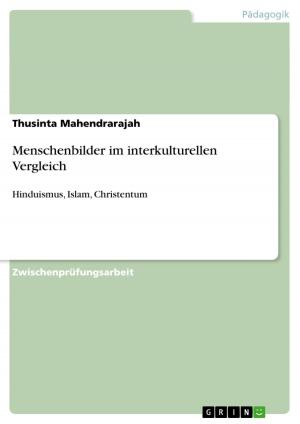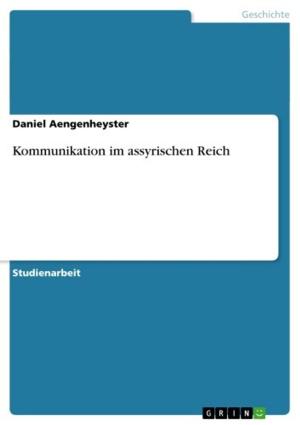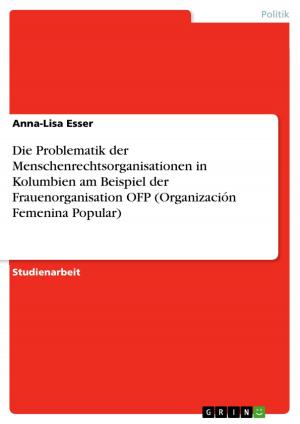Education and Peacebuilding. What role has formal education played in fostering a sustainable, positive peace in post-genocide Rwanda?
The 'two faces' of the Rwandan education system's contribution to the national peacebuilding project
Nonfiction, Social & Cultural Studies, Political Science, International, International Security| Author: | JBA Wilton | ISBN: | 9783668272637 |
| Publisher: | GRIN Verlag | Publication: | August 10, 2016 |
| Imprint: | GRIN Verlag | Language: | English |
| Author: | JBA Wilton |
| ISBN: | 9783668272637 |
| Publisher: | GRIN Verlag |
| Publication: | August 10, 2016 |
| Imprint: | GRIN Verlag |
| Language: | English |
Bachelor Thesis from the year 2016 in the subject Politics - International Politics - Topic: Peace and Conflict Studies, Security, grade: First Class Honours - 74, University of Exeter (College of Social Sciences and International Studies), course: BA International Relations, language: English, abstract: This dissertation illustrates the 'two faces' of Rwanda's formal education system in contributing to the creation of a sustainable, positive peace in the post-genocide state. In conveying this argument, it employs the emergent 'Four Rs Theoretical Framework' - which is grounded within the foundational Comprehensive Conflict Transformation Model of peacebuilding theory - to undertake a qualitative methodological evaluation of official primary documents and secondary sources. Through its appraisal of the developments of both the structure and the content of the Rwandan education system since 1994, this paper highlights the mixed record of Rwanda's formal education system in terms of its contribution to the nation's wider peacebuilding project. On the one hand, significant progress in all constituent components of the 'Four Rs' framework is observable. Policy changes to both its core foundations and its overarching curriculum have promoted elements of redistribution, representation, recognition and reconciliation in Rwanda. By facilitating the necessary personal, social, cultural and structural transformative processes, therefore, Rwanda's education system has gone some way in helping to build the infrastructure required for a sustainable, positive peace in the nation. On the other hand, however, this paper also seeks to draw attention to the evidence which suggests that today's post-genocide schools in Rwanda are in danger of undermining the nation's initial successes in building peace. The reflection and amplification of inequalities and exclusion throughout the central features of the education system risk constraining and potentially destabilising the nation's peacebuilding mission.
Bachelor Thesis from the year 2016 in the subject Politics - International Politics - Topic: Peace and Conflict Studies, Security, grade: First Class Honours - 74, University of Exeter (College of Social Sciences and International Studies), course: BA International Relations, language: English, abstract: This dissertation illustrates the 'two faces' of Rwanda's formal education system in contributing to the creation of a sustainable, positive peace in the post-genocide state. In conveying this argument, it employs the emergent 'Four Rs Theoretical Framework' - which is grounded within the foundational Comprehensive Conflict Transformation Model of peacebuilding theory - to undertake a qualitative methodological evaluation of official primary documents and secondary sources. Through its appraisal of the developments of both the structure and the content of the Rwandan education system since 1994, this paper highlights the mixed record of Rwanda's formal education system in terms of its contribution to the nation's wider peacebuilding project. On the one hand, significant progress in all constituent components of the 'Four Rs' framework is observable. Policy changes to both its core foundations and its overarching curriculum have promoted elements of redistribution, representation, recognition and reconciliation in Rwanda. By facilitating the necessary personal, social, cultural and structural transformative processes, therefore, Rwanda's education system has gone some way in helping to build the infrastructure required for a sustainable, positive peace in the nation. On the other hand, however, this paper also seeks to draw attention to the evidence which suggests that today's post-genocide schools in Rwanda are in danger of undermining the nation's initial successes in building peace. The reflection and amplification of inequalities and exclusion throughout the central features of the education system risk constraining and potentially destabilising the nation's peacebuilding mission.



